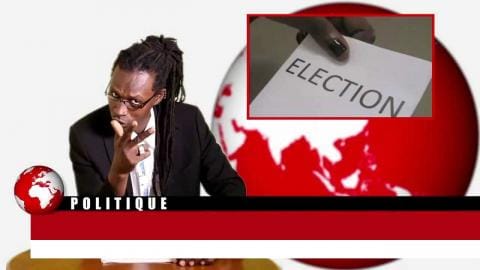Welcome to Dispatch #24! Let’s explore some critical media literacy resources for the modern age, the conditions we are up against, a successful hip-hop news project out of Senegal, an anti-capitalist artist in Los Angeles, and as always, plenty of ways to get involved yourself. Let’s get into it!
🔔 By the way – the Conscious Citizens turns 1 year old next month! Time has really flown and this project is growing fast! We’re so grateful to have you all with us. Thanks to your help spreading word combined with the support from our paid members (who are providing the legs for this project to move forward), we have some exciting new things coming soon to take this project to the next level! So please help us drum up some hype and tell a friend to sign up, follow our Instagram & YouTube, or even better, invest in us!
👋 Are you new here?
Sign up to get free newsletters sent to your inbox every other Sunday.
Have you already signed up? If you like what we've been sharing on the Conscious Citizens, invest in our work for as little as $2 USD/mo ($24/year) by becoming a paid member.
Since 95% of our subscribers are free readers, every contribution, no matter how small, makes a difference.
Easy Actions to Take
Why: Israel has once again struck Nasser Hospital in Gaza, and this time double-striked it on live TV while targeting hospital workers and journalists. Misleading coverage, like BBC’s, is what whitewashes these clear war crimes. Organized by Unmute Humanity
Why: BBC’s coverage of the genocide in Gaza has long been problematic and biased and now it is clear who is behind that. Robbie Gibb has used his position on the BBC Editorial Board to whitewash Israel’s crimes which is unacceptable for anyone in that sort of media position. Organized by Newscord
Why: The US has sent warships to Venezuela in an attempt to intimidate the country, and youth in Venezuela are training for potential war. Intervention of any form by a foreign country in the affairs of another is wrong, especially the US given its long history of neocolonialism in the region. Organized by World Beyond War
📆 Mark Your Calendar | Join a webinar by Lifeline for Gaza about how to pressure UN representatives to pass UN Resolution UN RES.377(V)
Why: The UN Resolution 377 is a potentially historic vote by the General Assembly that would supersede the authority of the Security Council and mandate the delivery of aid to Gaza with protection from UN troops. Join this webinar to learn how to pressure your UN representatives, and their countries, to hold the line for Gaza.
Little (Movement) Wins
Why It Matters: Reports in the West will focus on the violence of the protests, but these began when the people realized lawmakers were receiving a $3000 monthly housing stipend (a huge amount in Indonesia). Combined with rising inflation & massive unemployment, the people are angry to be left behind while the ruling class are comfortable.
Why It Matters: A coalition of over 40 international organizations are setting sail to break Israel’s blockade of Gaza in the largest flotilla so far. This is a historic demonstration of international solidarity as the people choose to act when their governments will not.
Why It Matters: Claudia Sheinbaum, Mexico’s current President, currently sits at over 75% approval rate (a historic high). Her party, the Morena Party, is relatively new and was formed as a third-party when the Leftist & Progressive wings of the Mexican Democratic party broke off. This separation, and a willingness to put faith into truly people-powered third parties, is what led to Mexico’s current success & should inform leftist movements elsewhere about electoral strategy.

The Hip-Hop Newsroom in Senegal
Activist History

